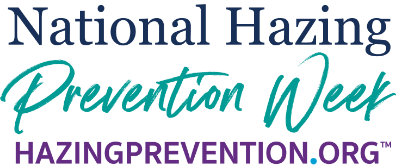National Hazing Prevention Week, sponsored by HazingPrevention.org, is kicking off this week and will run until Friday, September 24! National Hazing Prevention Week (NHPW) is designed to bring awareness to issues of hazing and empower campus communities to take action by educating students about what hazing is and the work we can all do to prevent hazing from happening.
At Missouri State University, we are committed to creating an environment that has no place for hazing. Hazing can create dangers to our students and community and create a hostile or negative environment. The hazing policy for our institution is outlined in the Code of Student Rights and Responsibilities, Section 4.5. The policy reads “Hazing, an act that endangers the mental or physical health or safety of a student, or which destroys or removes public or private property, for the purpose of initiation or admission into, affiliation with or as a condition of continued membership in a group or organization. The express or implied consent of the student will not be a defense to a violation of hazing. The willing participation or acquiescence of the student subject to the hazing activity is no defense and is still a violation of this policy.”
StopHazing.org, another prominent non-profit in hazing prevention, completed a national survey of over 11,000 students and found that 47% of those students nationwide have experienced hazing before they enter college. Additionally, the study found that 3 in 5 students surveyed are subjected to hazing while in college.
Hazing does not happen only in student organizations and fraternities and sororities, in fact, the National Collegiate Athletic Association (NCAA) found that experienced some form of hazing while in college (NCAA, 2007; Allan and Madden, 2008).
Most commonly hazing involves drinking games or other alcohol-related consumption, forced drug usage, sleep deprivation, harassment and humiliation, and being made to do demeaning activities in public or private spaces for the purpose of entrance into, or continued membership within specific groups (Allan and Madden, 2008).
In the spirit of creating a community free from hazing, Missouri State University Fraternity and Sorority Life (FSL) and Fraternity and Sorority Leaders for Social Awareness (FSLSA) will be hosting a variety of events and programs this week, seeking to raise awareness and educate students about hazing. Those events include:
- Anti-Hazing Banners, beginning September 20th
- Anti-Hazing Tabling! Sign the Anti-Hazing Pledge and receive free P-Whip. September 21st, 12:00 p.m. – 4:00 p.m. in Plaster Student Union
- Anti-Hazing Educational Event with guest speaker Lianne Kowiak September 21st, 6:00 p.m. in Glass Hall 102
There are a variety of resources you can explore to learn more about hazing, including:
- Hazingprevention.org
- Stophazing.org
- College Hazing: What it is and how to stop it
- Office of Student Engagement
- Office of Student Conduct
To report potential hazing incidents:
- Contact the Anti-Hazing Hotline at (888) 668-4293
- Contact the Missouri State University Ethics Hotline at (888) 233 – 8988
- Complete an incident reporting form
- Athletics incidents should be reported to the appropriate head coach, faculty athletics representative, or athletic director as outlined by the Student-Athlete Code of Conduct
- Contact the Office of Student Conduct
References
NCAA (2007) Building New Traditions: Hazing Prevention in College Athletics.
Allan, E. J. & Madden, M. (2008). Hazing in View: College Students at Risk. (http://www.hazingstudy.org/publications/hazing_in_view_web.pdf), University of Maine, College of Education and Human Development.

